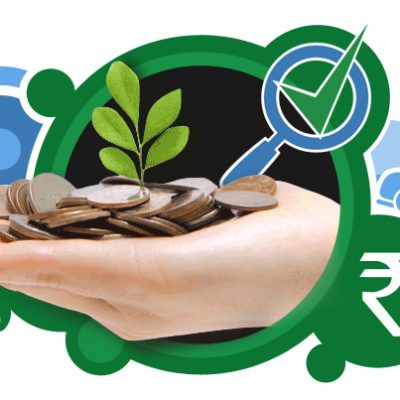Personal loans require no collateral, and are quickly processed because they require much less documentation than secured loans. This means that you can get quicker access to loan funds.

These make for a good solution to cash crunch situations and emergencies. However, as they are unsecured loans, the lender will charge a higher rate of interest.
About Personal Loan Interest Rates
Banks and NBFCs offer personal loans that come with varying rates of interest, amounts, and loan tenures. There are a few factors that determine how lenders gauge your ability to repay a loan; you’d do well to keep an eye on these, as this directly affect the interest rates you’ll be offered.
Your Employer
Banks view salaried people as safer borrowers because they have a steady income. To be specific, they look at your employers. These fall into many categories.
The top categories are viewed as highly reputable; you can try and get a lower interest rate if you are employed by one of these organisations.
Your Credit History
Another important factor that banks consider is your credit score. Whether you are self-employed or salaried, if you have a high credit score, the bank or NBFC will consider you a safe borrower and sanction the loan.
Banks get credit reports from agencies like CIBIL. If you have paid off your loans and keep make credit card payments on time, your credit score will be higher. You can use this to get a personal loan at a lower rate of interest.
Loan Tenure
Personal loans are short term loans, and the amounts are also comparatively smaller and fall between Rs. 50,000 to Rs. 15 lakhs or above. These loans are intended to meet sudden cash needs, and are designed to be paid off quickly as well.
Tenures these loans range between one to five years. The longer the tenure, the lower the EMI. Longer tenures reduce your monthly repayment amount, but interest rates go up. You can use the personal loan emi calculator facilities on the lender’s website and calculate the biggest amount you can afford in a short tenure. This will help you keep interest rates lower.
The Actual Interest Rate
Personal loans are mostly offered at fixed rates, but lenders also offer diminishing rates calculated monthly or annually. Simply put, once you start your EMI payments, the interest is recalculated on the remaining loan amount; your interest amount keeps coming down.
Should you choose the monthly reducing rate option, your EMI will gradually reduce after every installment.
Your Relationship with the Lender
If you are an account holder, lenders will be able to easily gauge your financial status. If you have taken loans and paid them off on time, you will be quickly approved for another loan. This might also prove handy in getting lower interest rates.
Banks take several factors into consideration when they assess your loan eligibility and interest rates. If you have several of these factors going in your favour, lenders may themselves offer a personal loan at lower rates; if they don’t, you can negotiate for lower rates and other favourable features.



